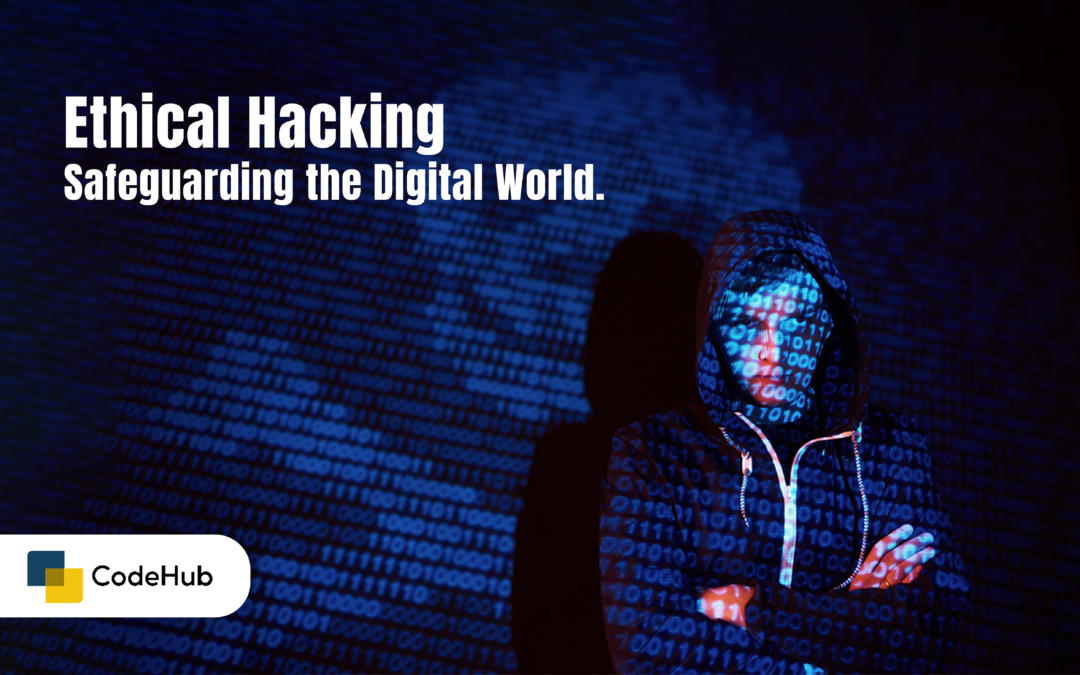Introduction
In today’s interconnected world, cybersecurity threats are ever-present and constantly evolving, posing significant risks to individuals, businesses, and governments alike. Amidst this growing landscape of cyber threats, ethical hacking has emerged as a crucial practice for identifying and mitigating vulnerabilities before malicious hackers can exploit them. This blog post explores the importance of ethical hacking and its role in fortifying our digital defenses.
Understanding Ethical Hacking
Ethical hacking, also known as penetration testing or white-hat hacking, involves authorized individuals or teams probing systems, networks, and applications to uncover security flaws. Unlike malicious hackers, ethical hackers operate with permission and a clear mandate to enhance security. They use the same techniques and tools as their unethical counterparts, but their goal is to identify and fix vulnerabilities rather than exploit them.
Key Benefits of Ethical Hacking
- Identifying Vulnerabilities:
Ethical hackers systematically assess systems to uncover weaknesses that could be exploited by malicious actors. By identifying these vulnerabilities, organizations can address and patch them before they become targets of attacks.
- Enhancing Security Posture:
Regular ethical hacking assessments help organizations maintain a robust security posture. By continuously testing and improving defenses, businesses can stay ahead of emerging threats and reduce the risk of breaches.
- Compliance and Regulatory Requirements:
Many industries are subject to stringent cybersecurity regulations and standards. Ethical hacking helps organizations meet these requirements by demonstrating proactive measures to safeguard sensitive data and systems.
- Preventing Data Breaches:
Data breaches can have devastating consequences, including financial losses, reputational damage, and legal ramifications. Ethical hacking helps prevent data breaches by identifying and addressing security gaps that could be exploited by attackers.
- Building Trust with Customers:
In an era where data privacy and security are paramount, customers expect organizations to protect their information. By investing in ethical hacking, businesses can build trust with their customers and demonstrate their commitment to cybersecurity.
The Ethical Hacking Process
- Reconnaissance:
Ethical hackers gather information about the target system to understand its structure and identify potential entry points. This phase involves passive and active reconnaissance techniques to collect data without alerting the target.
- Scanning:
In this phase, ethical hackers use various tools to scan the target system for vulnerabilities. They look for open ports, services, and potential weaknesses that could be exploited.
- Gaining Access:
Ethical hackers attempt to exploit identified vulnerabilities to gain access to the target system. This step helps them understand how an attacker could infiltrate the system and the potential impact of such an intrusion.
- Maintaining Access:
Once access is gained, ethical hackers simulate maintaining control over the system. This phase tests the ability of the organization’s defenses to detect and respond to ongoing attacks.
- Analysis and Reporting:
After completing the penetration test, ethical hackers analyze their findings and compile a comprehensive report. This report outlines the vulnerabilities discovered, the methods used, and recommendations for remediation.
- Remediation and Follow-up:
Organizations use the ethical hacking report to address the identified vulnerabilities. Follow-up testing ensures that the remediations are effective and that no new vulnerabilities have been introduced.
Challenges in Ethical Hacking
Despite its importance, ethical hacking faces several challenges:
- Staying Ahead of Emerging Threats:
Cyber threats are constantly evolving, making it challenging for ethical hackers to keep up with the latest attack techniques and vulnerabilities.
- Resource Constraints:
Conducting thorough penetration tests requires skilled professionals and advanced tools, which can be costly and resource-intensive.
- Legal and Ethical Considerations:
Ethical hackers must navigate complex legal and ethical landscapes to ensure their activities are authorized and compliant with regulations.
- Balancing Security and Usability:
Enhancing security often involves trade-offs with usability. Ethical hackers must find a balance that ensures robust security without hindering user experience.
Conclusion
In a world where cyber threats are ubiquitous and sophisticated, ethical hacking plays a vital role in safeguarding our digital infrastructure. By proactively identifying and addressing vulnerabilities, ethical hackers help organizations enhance their security posture, prevent data breaches, and build trust with customers. As cyber threats continue to evolve, the importance of ethical hacking will only grow, making it an indispensable component of any comprehensive cybersecurity strategy.
Investing in ethical hacking is not just a defensive measure; it is a proactive approach to securing the future of our digital world. By embracing ethical hacking, organizations can stay ahead of cybercriminals and ensure the integrity, confidentiality, and availability of their critical assets.

